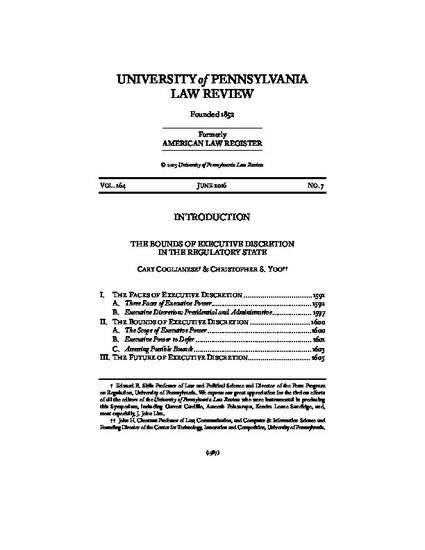
What are the proper bounds of executive discretion in the regulatory state, especially over administrative decisions not to take enforcement actions? This question, which, just by asking it, would seem to cast into some doubt the seemingly absolute discretion the executive branch has until now been thought to possess, has become the focal point of the latest debate to emerge over the U.S. Constitution’s separation of powers. That ever‐growing, heated debate is what motivated more than two dozen distinguished scholars to gather for a two‐day conference held late last year at the University of Pennsylvania Law School, a conference organized around the papers appearing in this special Issue of the University of Pennsylvania Law Review. We are pleased to introduce this insightful collection of scholarship by explicating the conceptual contours underlying the contemporary debate over executive discretion, and its bounds, in the regulatory state. [This abstract was prepared by the editors of the University of Pennsylvania Law Review.]
- Administrative law,
- constitutional law,
- separation of powers,
- executive power,
- federal courts,
- Heckler v. Chaney,
- Presidency,
- executive branch,
- POTUS,
- President of the United States,
- executive discretion,
- agency enforcement discretion
Available at: http://works.bepress.com/cary-coglianese/66/

164 U. Pa. L. Rev. 1587 (2016).